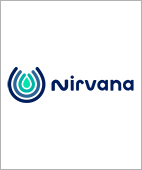
LIFE Project: In situ nanoenhanced bioremediation for aquifers affected by nitrates due to agricultural activity
- Type Project
- Status Filled
- Execution 2019 -2023
- Assigned Budget 1.189.042,00 €
- Scope Europeo
- Autonomous community Andalucía
- Main source of financing LIFE
- Project website Web del proyecto
The project addresses denitrification based on the improvement of biological denitrification through a dosing process with zero-valent iron (ZVI) nanoparticles, on a pilot scale, in a porous aquifer contaminated with nitrates of agricultural origin, representative of nitrogen-contaminated aquifers in Europe.
Design, construction, and operation of a pilot-scale denitrification site in a porous aquifer contaminated with nitrates of agricultural origin, representative of nitrogen-contaminated aquifers in Europe.
Groundwater constitutes the world's largest reserve of freshwater and is an important resource, especially for drinking water (75% of the European population depends on it). Nitrogen fertilizers, along with pesticides, are applied in agriculture to increase crop production, but their extensive use has led to groundwater contamination by nitrates and pesticides, which has led to the degradation of groundwater quality and the contamination of drinking water supplies.
This can pose immediate risks to human health, especially in intensively agricultural areas of the Mediterranean, which also suffer from severe, cyclical water shortages. The degradation of water bodies by nitrates in these contexts worsens water stress and limits economic growth. Groundwater bodies with nitrate levels above 50 mg/l are considered to fail to meet the requirements for good chemical status, as set out in the Nitrates Directive (91/676/EEC) and reinforced by the Water Framework Directive (2000/60/EC).
To reduce nitrate concentrations in contaminated aquifers through in situ remediation using a novel, effective, and environmentally friendly technology based on improved biological denitrification using a zero-valent iron (ZVI) nanoparticle dosing process.
- The plant was in operation from July 2021 to June 2023, albeit with some downtime. During its operation, 2,189 water samples were collected, 20,112 analyses were performed, and more than 300 injections of nZVI and organic matter were made. Despite the challenges faced during implementation, the beneficiaries demonstrated technical, environmental, and economic feasibility through Life Cycle Assessment (LCA), Life Cycle Costing (LCC), Social Life Cycle Assessment (SLA), and Cost Benefit Analysis (CBA), showing better performance than alternative treatments.
- The project results also allowed the beneficiaries to define the primary objective for implementing the project solution. The general recommendation is to focus replication efforts on porous aquifers with: Nitrate content between 50-70 mg/L; low or moderate sulfate and chloride concentrations; and treatment depths of up to 150 m (greater depths imply a significant increase in CAPEX and injection complexity). The scenario included in the business plan contemplates a first phase in which the project solution would be further optimized to reach a level of maturity that allows for commercialization. They then set a challenging goal for 2028: to implement the NIRVANA technology in five individual wells and one full-scale site.
- Coordinator/entity name: Damián Sánchez
Postal address: SEVERO OCHOA, N 7, 29590, MÁLAGA,
- Fundación Centro Andaluz de Investigaciones del Agua
- EMUASA(EMPRESA MUNICIPAL DE AGUAS Y SANEAMIENTO DE MURCIA, S.A)
- AQUATEC(AQUATEC, PROYECTOS PARA EL SECTOR DEL AGUA, S.A.U.)







